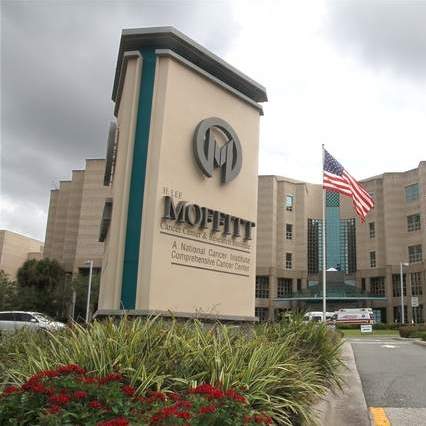Mesothelioma Cancer Centers In Florida
H. Lee Moffitt Cancer Center & Research Institute
Founded in 1986, the H. Lee Moffitt Cancer Center & Research Institute is a nonprofit cancer treatment center located on the Tampa campus of the University of South Florida; it is the primary cancer treatment center affiliated with the University of South Florida College of Medicine. Moffitt, a National Cancer Institute Comprehensive Cancer Center, offers 13 specially designed clinical programs for the treatment of various types of cancers.
History
The Moffitt Cancer Center is named after H. Lee Moffitt, a former Florida state representative and cancer survivor who in 1978 started pushing to bring a cancer center to the Tampa area. At the time, statistics showed that more than 14 thousands new cancer cases were expected each year within a 100-mile radius of Tampa. Moffitt was shocked by these numbers, and worked with University of South Florida College of Medicine Dean Andor Szentivanyi to get the community and state legislature on board with the new cancer center. After years of work, $70 million cancer center was dedicated in October 1986. It was named after Moffitt, who by then was serving as Speaker of the Florida State of Representatives.
In 1990, the Moffitt Cancer Center acquired a nearby Research Center building, which allowed the facility to put more emphasis on research activities. Researchers at the new center aimed to make medical advances that could very quickly be utilized with patients. After receiving $12 million in funding from the state of Florida, the 100,000-square-foot Moffitt Research Center opened its doors in 1995. Expansions in 1999 and 2003 nearly doubled the research center’s size and allowed it to greatly expand its operations.
Today, Moffitt offers scientific programs in areas such as molecular oncology, drug discovery, immunology, experimental therapeutics, computational biology of cancer, and detection and intervention. To further extend its reach, the hospital has also partnered with 16 medical center affiliates and 370 affiliate physicians to develop a high-quality network that offers the most cutting-edge treatments throughout Florida and beyond.
Mesothelioma Treatment at H. Lee
Moffitt Cancer Center & Research Institute
Mesothelioma –
a type of cancer caused by asbestos exposure that affects the lining of the
chest or abdomen – is treated through Moffitt’s Thoracic Oncology Program.
Because mesothelioma is relatively rare, doctors at Moffitt do careful testing
to ensure a patient’s diagnosis is correct; they may conduct a physical
examination, chest x-ray, a “complete blood count” (a blood test that measures
red blood cells, white blood cells, platelets and hemoglobin content), a
biopsy, and other tests.
Once diagnosed,
doctors typically fight mesothelioma with a combination of several treatments,
generally surgery, radiation and chemotherapy. However, treatment differs
for each individual patient depending on several factors: the stage and size of
the tumor, the patient’s age and general health, type of mesothelioma, and
recurrence of the disease. The Thoracic Oncology Program takes an
interdisciplinary approach to fighting lung diseases like mesothelioma,
assembling a team of medical oncologists, pulmonologists, surgeons, radiation
therapists and other specialists who work together to ensure a united front
against each patient’s cancer. Clinical trials are also available for many
patients who wish to undergo special, cutting-edge treatments.
Instead of
simply treating the disease, the Moffitt Cancer Center focuses on “total cancer
care” for the individual patients and their families. Psychological workers,
dieticians and other health care workers help to make the cancer treatment
process as smooth as possible for everyone involved.
The Moffitt
Cancer Center currently offers 206 beds plus a 36-bed blood and marrow
transplant unit, 12 operating rooms, and well-outfitted radiology and radiation
departments. The hospital has more than 3,800 staff members, including 338
doctors, 87 residents, 800 researchers, and hundreds of volunteers. (update)

Comments
Post a Comment